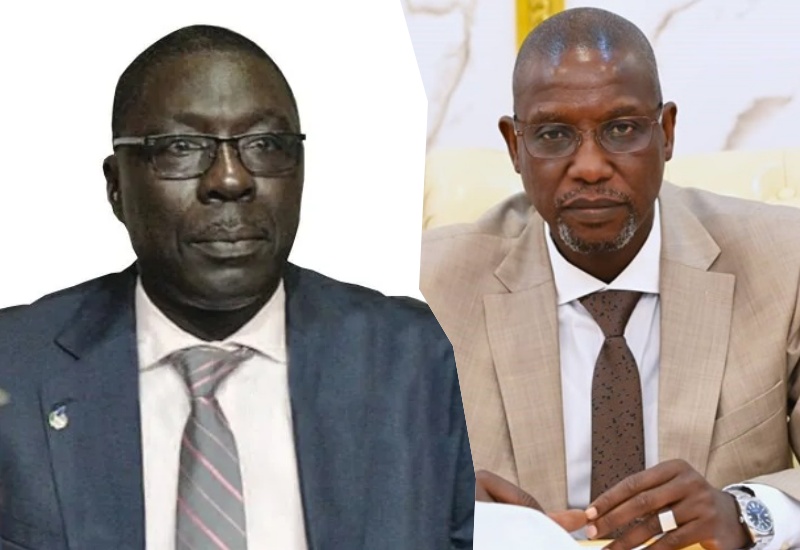Gambiaj.com – (BANJUL, the Gambia) – The Gambia’s National Assembly is heading toward a pivotal vote on Thursday that could, for the first time in the country’s political history, result in the removal of cabinet ministers based on a parliamentary resolution.
As tensions rise over the implications of the report on the Russian oil scandal, signs of internal divisions have emerged within the ruling National People’s Party (NPP) caucus, exposing a fraught balance between political loyalty and public accountability.
The report in question, compiled by a parliamentary committee investigating the controversial importation of Russian oil, recommends punitive actions against two cabinet ministers and several other officials for their alleged roles in the scandal.
The findings, according to sources close to the Assembly, detail lapses in due process, questionable approvals, and the apparent disregard of procurement and regulatory safeguards.
But while the recommendations have been lauded by many as a bold step toward transparency, the NPP majority bloc is reportedly grappling with the political ramifications of endorsing them.
A source familiar with internal caucus discussions told The Standard that a meeting was convened by Majority Leader Billay G. Tunkara and attended by a senior official from the Ministry of Justice to review the report’s contents and “advise members of the NPP caucus on the implications” of its implementation.
“The majority caucus is very concerned that if these recommendations are allowed to pass and be implemented, it will be the first time in the history of The Gambia that cabinet ministers are removed on the back of a parliamentary resolution, which will bring shame to the image of the government,” the source said.
It was reportedly argued during the meeting that the committee had not presented sufficient evidence to warrant such severe sanctions, and the caucus allegedly resolved to oppose the recommendations to shield the ministers from censure.
When contacted, Majority Leader Tunkara confirmed the meeting but denied any intention to influence the vote or undermine the inquiry’s recommendations.
“As leader of the majority, I have the right and often call government officials to come for consultations on any matter necessary. That is a routine occurrence. The meeting was not called for the reason you have alleged,” he stated.
Still, the mere confirmation of behind-closed-door consultations with executive officials has raised eyebrows, especially in light of the Assembly’s constitutional responsibility to serve as a check on executive power.
Critics argue that any attempt to shield ministers from consequences not only undermines the authority of parliamentary investigations but also sends a dangerous message about impunity at the highest levels of government.
Observers warn that the current standoff could set a troubling precedent. “If parliament conducts a thorough investigation, uncovers serious misconduct, and then fails to act because of partisan calculations, it damages both the institution and the democratic contract,” said a legal analyst familiar with the case.
Yet the tension highlights a deeper dilemma: how far should ruling party lawmakers go in protecting political allies, especially when the facts point to failures that have cost the public trust?
For many Gambians, the oil saga has come to symbolize a broader frustration with opaque governance, and this week’s vote will be seen as a test of the legislature’s integrity.
Whether the Assembly chooses to affirm the principle of accountability or closes ranks to protect its own, the decision will resonate far beyond the corridors of parliament. It may well redefine the contours of executive-legislative relations in The Gambia and determine whether the pursuit of justice can overcome the inertia of political convenience.










